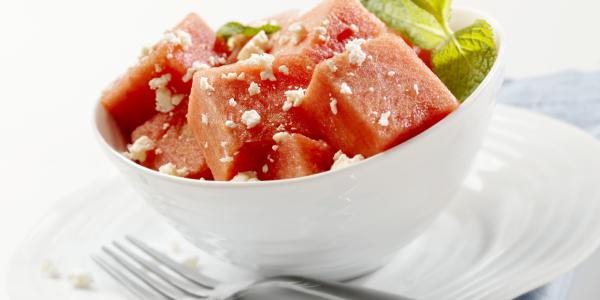
If you are 1 of 7 men in the U.S. to have been diagnosed with prostate cancer, then you may be debating the nutritional aspects of this diagnosis.
The goal of this “self-debate” about diet is to reduce the risk of prostate cancer progression. Just as important in regard to diet is to improve your overall health (prevent other diseases that commonly occur with aging), improve quality of life and increase longevity.
What are the nutrition recommendations for men with prostate cancer? Let’s review the conclusions of scientific evidence for known factors as well as briefly mentioning food ideas that have gained popular attention but lack sufficient data to make recommendations.
The Continuous Update Project analyzes worldwide research and makes recommendations. The 2014 report (a new updated report is due out this year) looked at 104 studies from around the world with over 191,000 cases of prostate cancer. This is their findings:
Skip
Known Facts:
- Overweight or obesity: Obesity influences the levels of a number of hormones and growth factors which can promote the growth of cancer cells. Obesity is also associated with low-grade chronic inflammation which can promote cancer development. To reduce the risk of developing advanced prostate cancer, maintain a healthy weight.
- Foods high in beta-carotene: Beta-carotene, or pre-Vitamin A, in food or supplements are unlikely to have any effect on reducing risk of prostate cancer.
Nutrition Ideas with Limited or No Conclusion:
Milk, dairy, eggs and soy have caused quite a bit of discussion as to whether they need to be avoided. Studies do not support making recommendations to avoid these foods or food groups. Because of variations in diagnosis and classifications of the disease, it is just more difficult to interpret the evidence.
What to do?
Men need adequate calcium from healthy foods, including low-fat dairy, vegetables and fortified whole grains and plant-based milks. High fat dairy foods and single calcium supplements should be avoided. It is best to aim for 500-700 mg per day of calcium and not exceed 1000 mgs calcium. One cup of skim milk has about 300 mg of calcium and one cup of yogurt has about 450 mgs of calcium.
There are hypotheses that eggs and soy (which contain lecithin and phosphatidylcholine) may increase risk of prostate cancer. Some consider limiting egg intake to no more than 3 per week. Regarding soy, there is limited data to suggest much impact of soy on prostate cancer progression. In laboratory studies, soy is beneficial, but in population studies the benefit of soy was not as evident (but it was not harmful). It is advisable that men only avoid supplements with lecithin or phosphatidylcholine.
Coffee and tea. The evidence is not strong enough to recommend men to drink coffee or tea to lower risk.
Selenium: Limited-suggestive evidence that low plasma selenium concentrations increases risk of prostate cancer. If desired, add 2 Brazil nuts daily which provide about 100 micrograms of selenium with the benefit of fiber and other nutrients. It is not recommended to take selenium supplements.
Tomatoes are high in the phytonutrient lycopene. Men with or without prostate cancer are encouraged to consume a variety of vegetables, including cooked tomatoes. Lycopene is a well-studied antioxidant in the fight against prostate cancer. Cooking tomatoes and eating them with a small amount of healthy fat increases the body’s ability to absorb lycopene. It is not recommended that men take a separate lycopene supplement.
One-half cup of cruciferous vegetables a day can lower the risk for recurrent prostate cancer in men with non-metastatic prostate cancer is the suggestion in a promising new study. Cruciferous vegetables include cauliflower, cabbage, Brussels sprouts, arugula, chard, kale, broccoli and more.
Summary:
Although it is natural to focus in on a specific type of food to help us fight cancer, the KNOWN risk factor for prostate cancer and recurrence is being overweight. So definitely follow Cancer Healthy Eating guidelines to achieve the greatest overall health benefit. Fill half of your plate with non-starchy vegetables (aim for 8-10 servings daily), one-quarter of your plate with lean vegetable or animal protein, and one-quarter of your plate with whole grains. Choose healthy fats and use them sparingly. This approach far exceeds a plan that simply avoids dairy or eggs and adds selenium!

